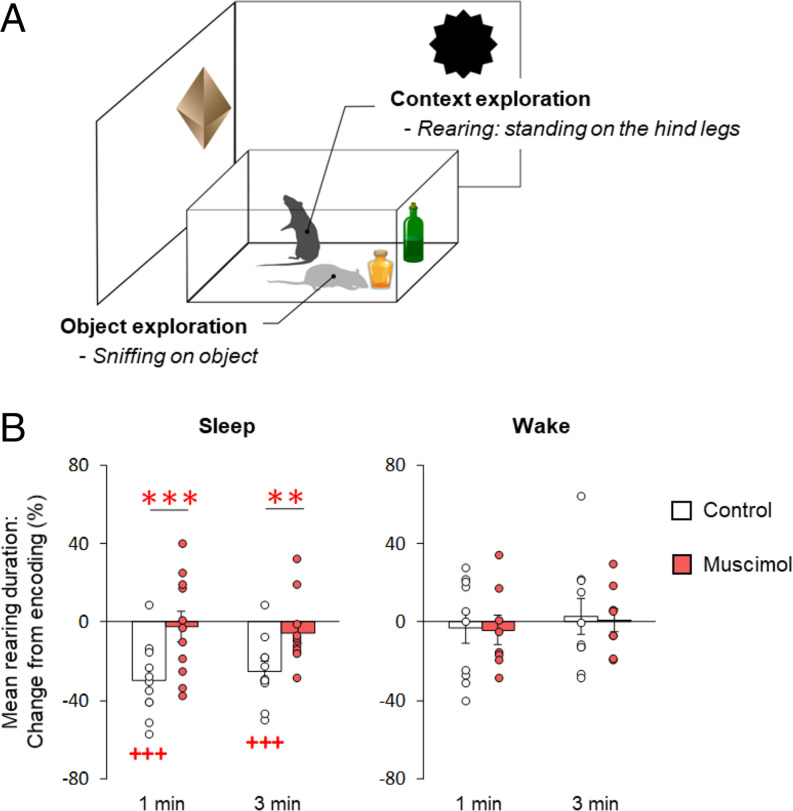Fig. 2.
Postencoding sleep, but not wakefulness, decreases exploratory rearing at remote NOR testing. (A) Illustration of the two prominent exploratory behaviors on the NOR task. In addition to object exploration (object sniffing), rearing on the hind legs was analyzed to assess to what extent remote retrieval involved recall of environmental context, that is, distal spatial cues. (B) Percentage change in mean rearing duration (mean ± SEM) at first and third minutes of retrieval testing, compared to mean rearing duration during encoding (set to 100%). Only rats that had slept after encoding (Left) and retained hippocampus function (empty bars) showed a decrease in rearing duration at retrieval, whereas mean rearing duration in the rats that remained awake (Right) and in the rats whose hippocampi were inactivated during the postencoding interval (red bars) did not change between encoding and remote retrieval testing; n = 11, 11, 10, and 8 rats for sleep control, sleep muscimol, wake control, and wake muscimol groups, respectively. +++P < 0.001, for one-sample t tests against chance level; ***P < 0.001, **P < 0.01, for pairwise t tests (two-sided) between muscimol and control groups.

